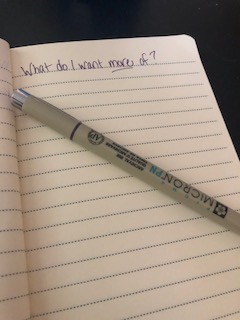Beliefs, Thoughts, and How to Start Changing Them
I want to talk to you about the beliefs we hold, how they factor into our thoughts and how those thoughts influence us. I want to talk about what we can do, to change our thoughts and change our lives. Yes, it’s quite possible.
Last week, I experienced something health-wise that came on suddenly and resulted in my being hospitalized for three days. One minute I was at home with my son and our dog looking forward to a relaxing day, and by the end of the day I was being admitted to the hospital in need of iv antibiotics. I would not be able to go home and get the things that I would require for an extended hospital stay. The trash goes out tonight! The laundry needs to be done! The vacuuming! Dinner! Work! Then that morphed into, what if I lose my eye! What if the medications don’t work and the infection spreads to my brain! My mind went into overdrive, thinking of everything that I would need to make happen from a hospital bed, and my fate. It was incredibly stressful and frightening.
I also noticed that my brain wanted to go to the scariest, most alarmist of places. I noticed how my thoughts were telling me a lot of things that weren’t necessarily true, and I found myself reminding me frequently that, “there is no evidence for this” and reminding myself that “everything will work out.” My anxiety had spiked and I was doing what we are prone to do as humans– resort to our old ways of coping and managing, even if they aren’t healthy. I stopped myself a lot and asked, “Is this worry serving me?”
We go throughout our days, experiencing so many different thoughts that we may not even acknowledge them as they come and go… This can be especially heightened in times of distress, and it can be even more difficult to stop, take a breath, and evaluate the situation. It’s so easy in these times, to spiral…
Everything you believe now is based on your past. Each of these beliefs were learned, either directly, or indirectly. Based on these beliefs, we form thoughts. Some of these thoughts do not serve us, and may be so ingrained that we just accept them as “truth” — even when they aren’t.
I have an exercise that I like to engage in daily. Sometimes I don’t have much time to spend, but I still make sure that I get a few minutes in, at least. I found this quite useful while in the hospital and was glad that I had this tool and had been practicing.
I call it “Thought Drop.” I spend the time that I have allotted each day noticing my thoughts and what may come up along with those thoughts. I examine them, and decide if it’s a thought (or belief) that serves me. If it does, great! If it doesn’t, that thought is replaced with a new one that does. (The behaviorist in me knows that simply willing a thought to stop will never work. There must be a replacement.) I like to journal while I do this, as getting the thoughts from my head to the page is really helpful. I also like to look back upon occasion to identify any patterns in thoughts and to track my progress.
Set aside some time – even if it’s just 10 minutes. Find a space free of distraction, turn your phone off, and get comfy.
Begin to notice your thoughts. Don’t force anything. Your first thought may be, “this is ridiculous,” that’s okay, too. Just breathe and stay with it. Trust me. It will come over time and through regular practice. As each thought comes up, ask yourself, “Is this true? Is this helpful? What other experiences have I had that have helped formed this thought?” Take notes. If you find yourself thinking thoughts that aren’t true or helpful, think about what other thoughts you could replace them with. Approach this with self-compassion, as you would if someone you love came to you and said these things about themselves.
I’m inviting you to give this a try this week, even if it’s just for 10 or 20 minutes. There is an incredible amount of insight that we may unlock in simply listening to the stories that we tell ourselves. I’d also love to hear what this experience was like for you, so please come back and leave a comment or send me a message.
Kara Joy Werner
Related Posts
Leave a Reply Cancel reply
Categories
- anxiety (1)
- change (4)
- Counseling (1)
- grief (2)
- healing (1)
- holiday (1)
- Inspiration (5)
- loss (1)
- Mindfulness (6)
- Self care (7)
- Support (1)
- therapy (1)
- Transformation (5)
- Uncategorized (1)





